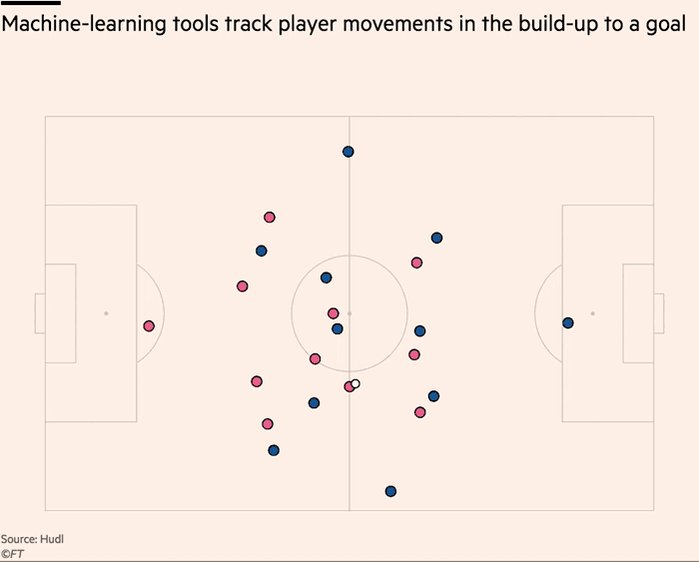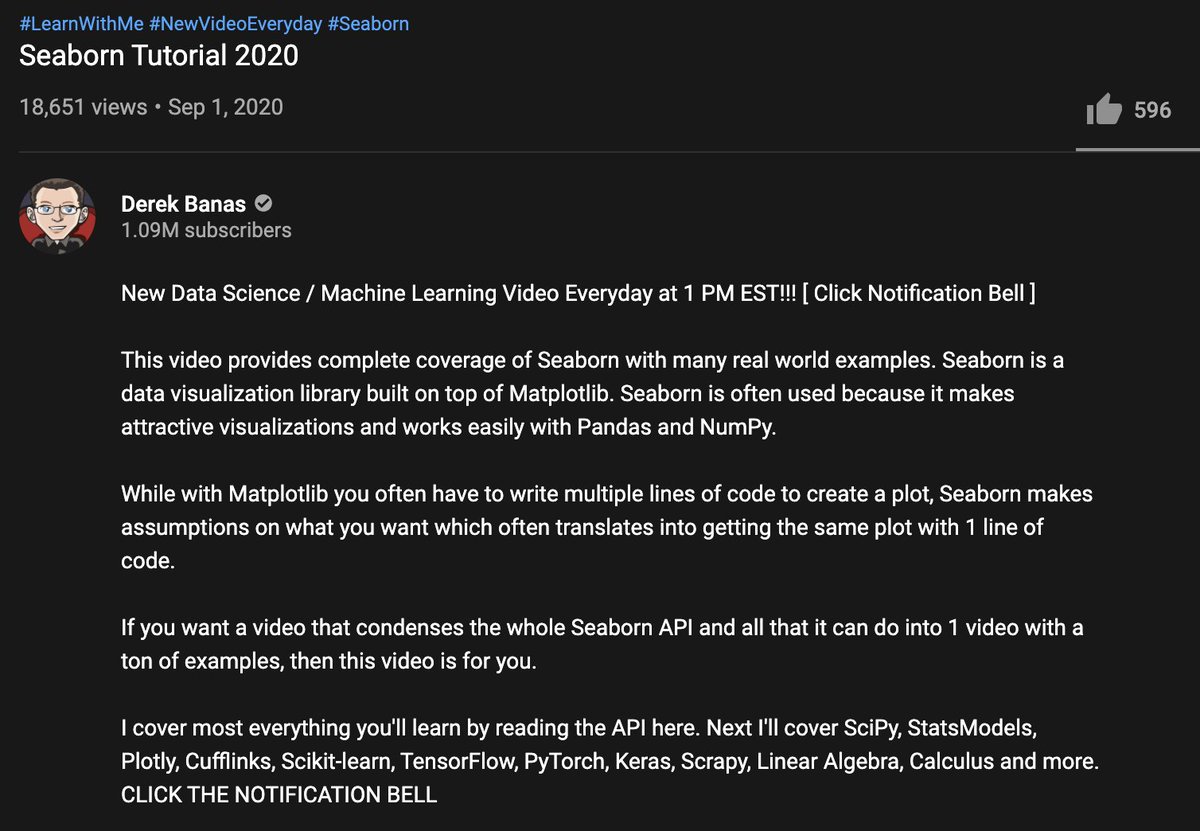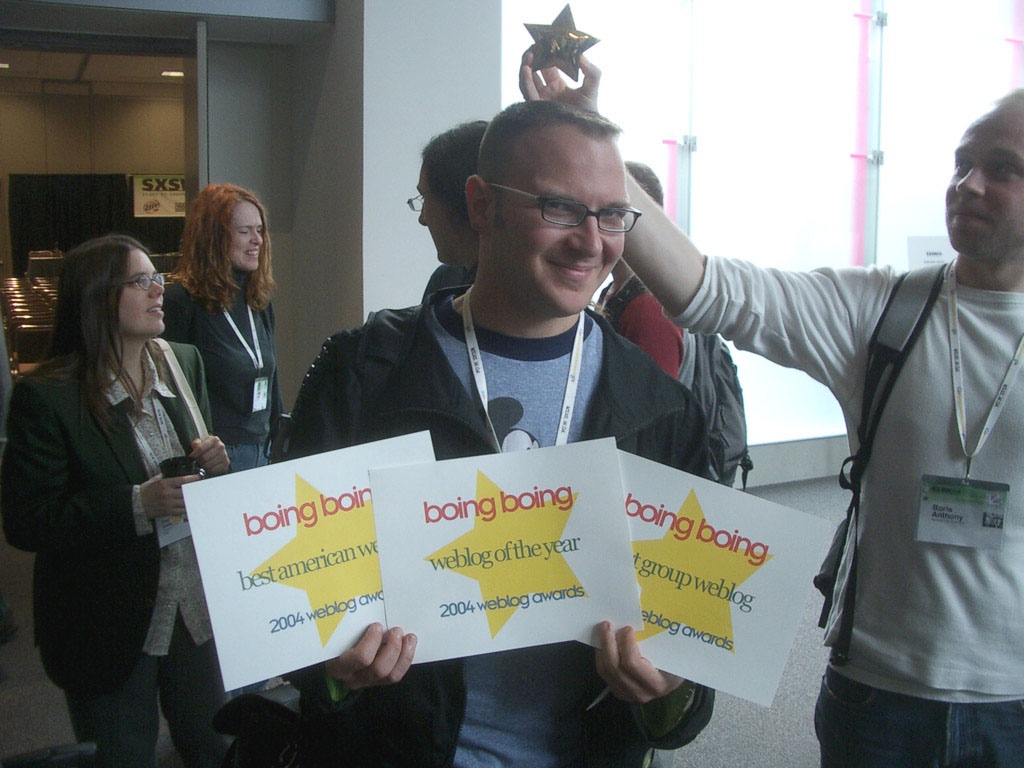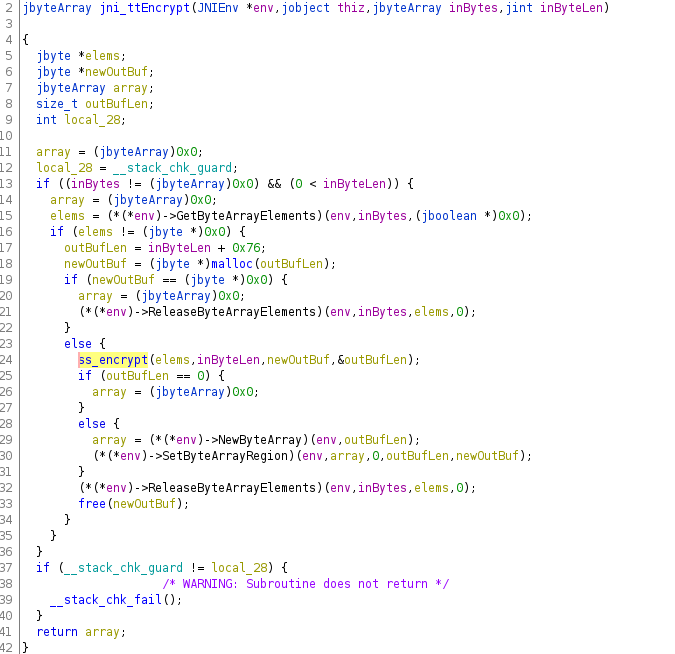2/
We hear a lot about Facebook as a platform for manipulation - using machine learning to bypass our critical faculties and trick us into believing things that are bad for us - but the real show is in Facebook's ability to target, not manipulate.
1/

2/
3/
4/
5/
6/
7/
8/
More from Cory Doctorow #BLM
More from Machine learning
Starting a new project using #Angular? Here is a list of all the stuff i use to launch my projects the fastest i can.
A THREAD 👇
Have you heard about Monorepo? I created one with all my Angular (and Nest) projects using https://t.co/aY5llDtXg8.
I can share A LOT of code with it. Ex: Everytime i start a new project, i just need to import an Auth lib, that i created, and all Auth related stuff is set up.
Everyone in the Angular community knows about https://t.co/kDnunQZnxE. It's not the most beautiful component library out there, but it's good and easy to work with.
There's a bunch of state management solutions for Angular, but https://t.co/RJwpn74Qev is by far my favorite.
There's a lot of boilerplate, but you can solve this with the built-in schematics and/or with your own schematics
Are you not using custom schematics yet? Take a look at this:
https://t.co/iLrIaHVafm
https://t.co/3382Tn2k7C
You can automate all the boilerplate with hundreds of files associates with creating a new feature.
A THREAD 👇
Have you heard about Monorepo? I created one with all my Angular (and Nest) projects using https://t.co/aY5llDtXg8.
I can share A LOT of code with it. Ex: Everytime i start a new project, i just need to import an Auth lib, that i created, and all Auth related stuff is set up.
Everyone in the Angular community knows about https://t.co/kDnunQZnxE. It's not the most beautiful component library out there, but it's good and easy to work with.
There's a bunch of state management solutions for Angular, but https://t.co/RJwpn74Qev is by far my favorite.
There's a lot of boilerplate, but you can solve this with the built-in schematics and/or with your own schematics
Are you not using custom schematics yet? Take a look at this:
https://t.co/iLrIaHVafm
https://t.co/3382Tn2k7C
You can automate all the boilerplate with hundreds of files associates with creating a new feature.
Really enjoyed digging into recent innovations in the football analytics industry.
>10 hours of interviews for this w/ a dozen or so of top firms in the game. Really grateful to everyone who gave up time & insights, even those that didnt make final cut 🙇♂️ https://t.co/9YOSrl8TdN

For avoidance of doubt, leading tracking analytics firms are now well beyond voronoi diagrams, using more granular measures to assess control and value of space.
This @JaviOnData & @LukeBornn paper from 2018 referenced in the piece demonstrates one method https://t.co/Hx8XTUMpJ5

Bit of this that I nerded out on the most is "ghosting" — technique used by @counterattack9 & co @stats_insights, among others.
Deep learning models predict how specific players — operating w/in specific setups — will move & execute actions. A paper here: https://t.co/9qrKvJ70EN

So many use-cases:
1/ Quickly & automatically spot situations where opponent's defence is abnormally vulnerable. Drill those to death in training.
2/ Swap target player B in for current player A, and simulate. How does target player strengthen/weaken team? In specific situations?
>10 hours of interviews for this w/ a dozen or so of top firms in the game. Really grateful to everyone who gave up time & insights, even those that didnt make final cut 🙇♂️ https://t.co/9YOSrl8TdN

For avoidance of doubt, leading tracking analytics firms are now well beyond voronoi diagrams, using more granular measures to assess control and value of space.
This @JaviOnData & @LukeBornn paper from 2018 referenced in the piece demonstrates one method https://t.co/Hx8XTUMpJ5

Bit of this that I nerded out on the most is "ghosting" — technique used by @counterattack9 & co @stats_insights, among others.
Deep learning models predict how specific players — operating w/in specific setups — will move & execute actions. A paper here: https://t.co/9qrKvJ70EN

So many use-cases:
1/ Quickly & automatically spot situations where opponent's defence is abnormally vulnerable. Drill those to death in training.
2/ Swap target player B in for current player A, and simulate. How does target player strengthen/weaken team? In specific situations?
10 machine learning YouTube videos.
On libraries, algorithms, and tools.
(If you want to start with machine learning, having a comprehensive set of hands-on tutorials you can always refer to is fundamental.)
🧵👇
1⃣ Notebooks are a fantastic way to code, experiment, and communicate your results.
Take a look at @CoreyMSchafer's fantastic 30-minute tutorial on Jupyter Notebooks.
https://t.co/HqE9yt8TkB

2⃣ The Pandas library is the gold-standard to manipulate structured data.
Check out @joejamesusa's "Pandas Tutorial. Intro to DataFrames."
https://t.co/aOLh0dcGF5

3⃣ Data visualization is key for anyone practicing machine learning.
Check out @blondiebytes's "Learn Matplotlib in 6 minutes" tutorial.
https://t.co/QxjsODI1HB

4⃣ Another trendy data visualization library is Seaborn.
@NewThinkTank put together "Seaborn Tutorial 2020," which I highly recommend.
https://t.co/eAU5NBucbm

On libraries, algorithms, and tools.
(If you want to start with machine learning, having a comprehensive set of hands-on tutorials you can always refer to is fundamental.)
🧵👇
1⃣ Notebooks are a fantastic way to code, experiment, and communicate your results.
Take a look at @CoreyMSchafer's fantastic 30-minute tutorial on Jupyter Notebooks.
https://t.co/HqE9yt8TkB

2⃣ The Pandas library is the gold-standard to manipulate structured data.
Check out @joejamesusa's "Pandas Tutorial. Intro to DataFrames."
https://t.co/aOLh0dcGF5

3⃣ Data visualization is key for anyone practicing machine learning.
Check out @blondiebytes's "Learn Matplotlib in 6 minutes" tutorial.
https://t.co/QxjsODI1HB

4⃣ Another trendy data visualization library is Seaborn.
@NewThinkTank put together "Seaborn Tutorial 2020," which I highly recommend.
https://t.co/eAU5NBucbm

You May Also Like
"I really want to break into Product Management"
make products.
"If only someone would tell me how I can get a startup to notice me."
Make Products.
"I guess it's impossible and I'll never break into the industry."
MAKE PRODUCTS.
Courtesy of @edbrisson's wonderful thread on breaking into comics – https://t.co/TgNblNSCBj – here is why the same applies to Product Management, too.
There is no better way of learning the craft of product, or proving your potential to employers, than just doing it.
You do not need anybody's permission. We don't have diplomas, nor doctorates. We can barely agree on a single standard of what a Product Manager is supposed to do.
But – there is at least one blindingly obvious industry consensus – a Product Manager makes Products.
And they don't need to be kept at the exact right temperature, given endless resource, or carefully protected in order to do this.
They find their own way.
make products.
"If only someone would tell me how I can get a startup to notice me."
Make Products.
"I guess it's impossible and I'll never break into the industry."
MAKE PRODUCTS.
Courtesy of @edbrisson's wonderful thread on breaking into comics – https://t.co/TgNblNSCBj – here is why the same applies to Product Management, too.
"I really want to break into comics"
— Ed Brisson (@edbrisson) December 4, 2018
make comics.
"If only someone would tell me how I can get an editor to notice me."
Make Comics.
"I guess it's impossible and I'll never break into the industry."
MAKE COMICS.
There is no better way of learning the craft of product, or proving your potential to employers, than just doing it.
You do not need anybody's permission. We don't have diplomas, nor doctorates. We can barely agree on a single standard of what a Product Manager is supposed to do.
But – there is at least one blindingly obvious industry consensus – a Product Manager makes Products.
And they don't need to be kept at the exact right temperature, given endless resource, or carefully protected in order to do this.
They find their own way.





























